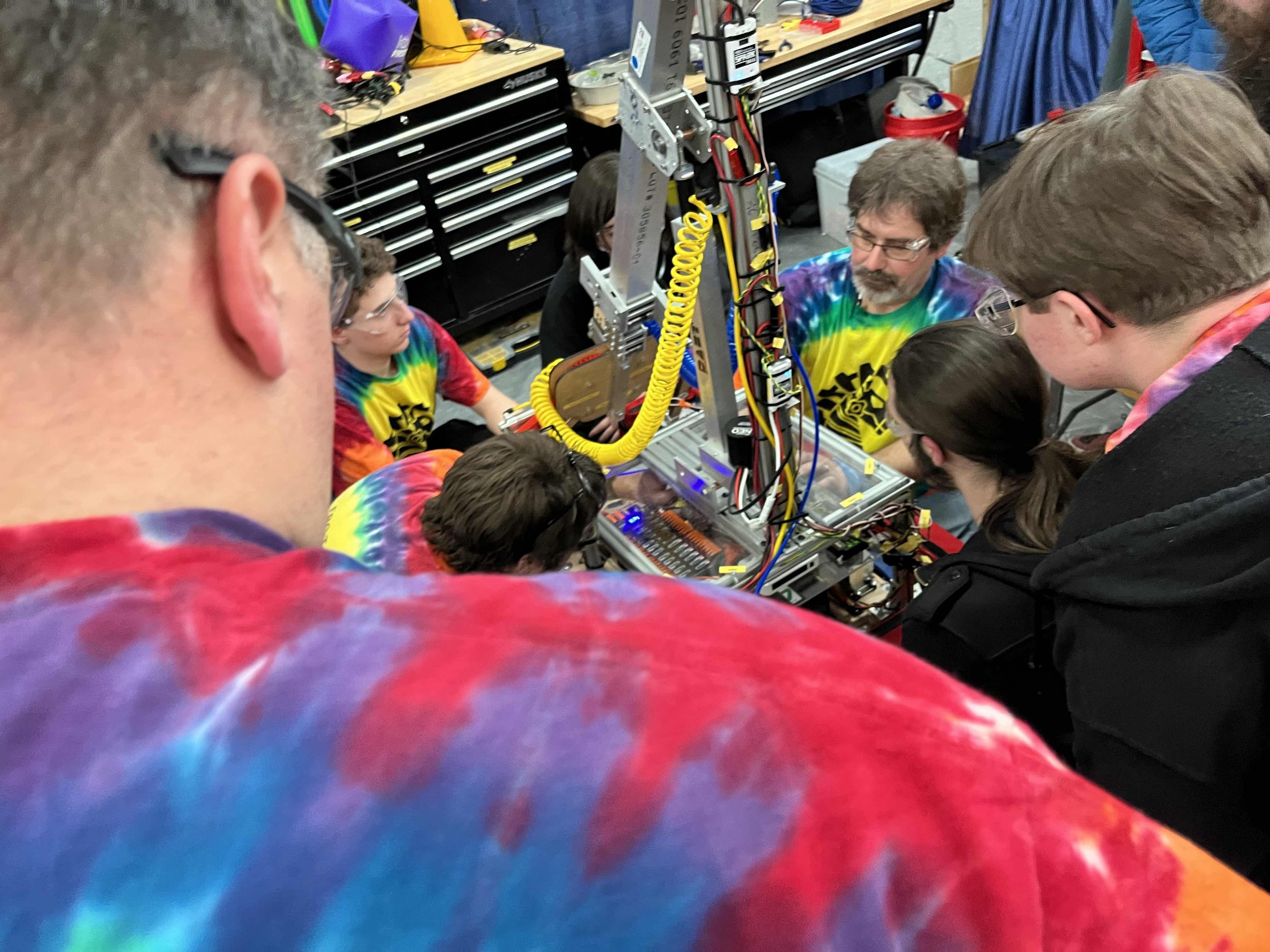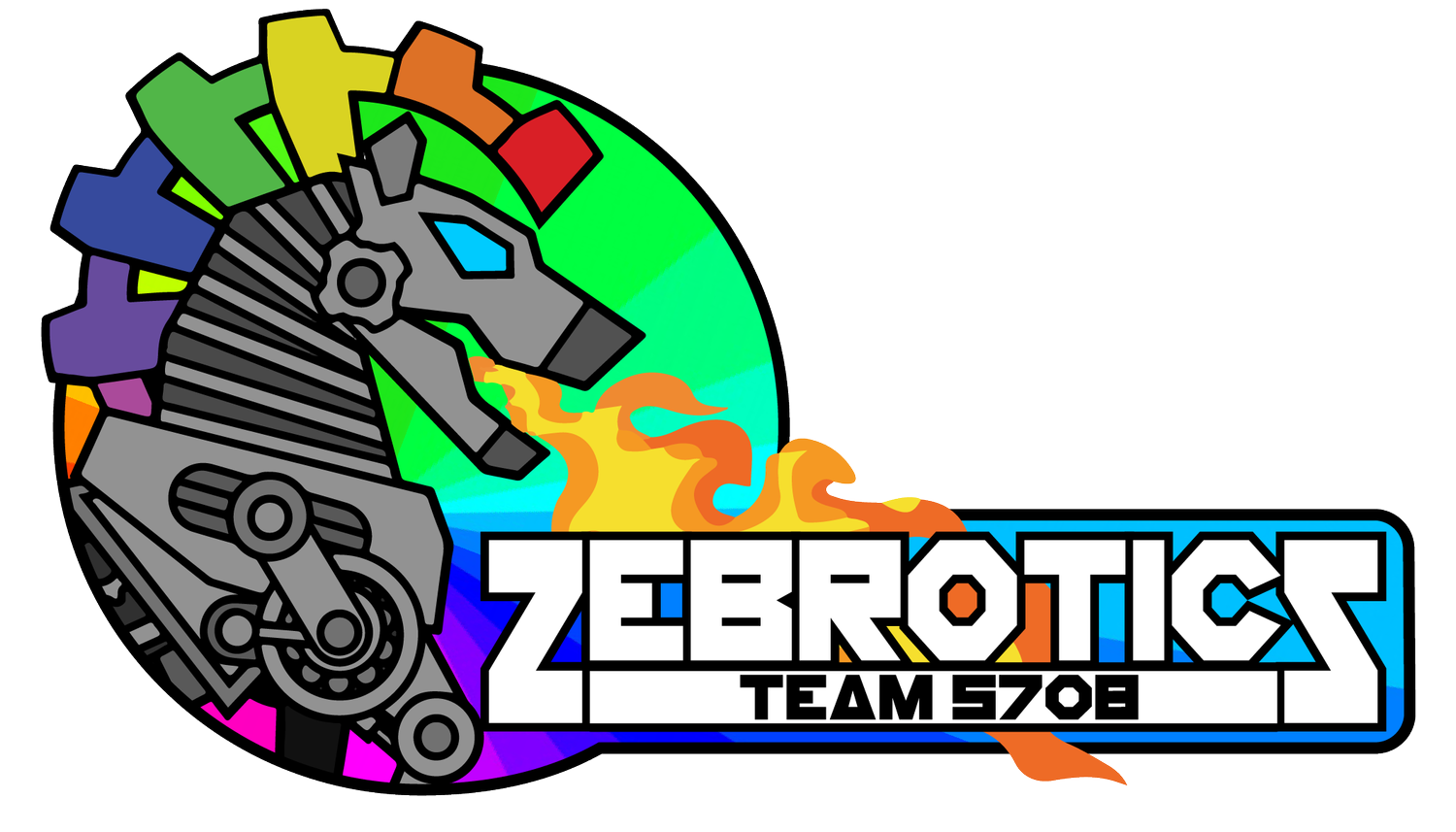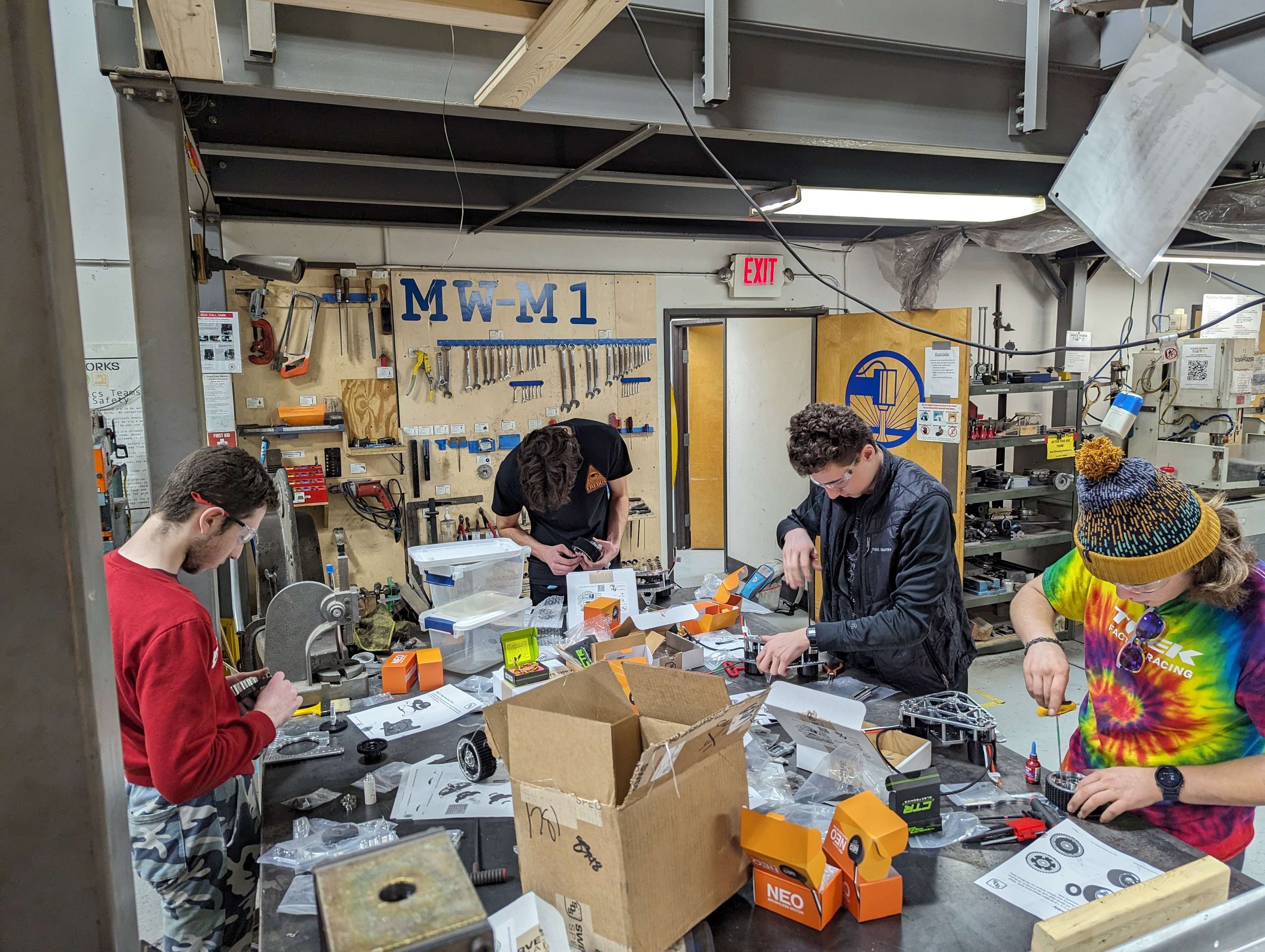The Start of the Robotics Journey in High School
The journey often begins in the classroom, where robotics classes foster technical skills and an understanding of the fundamentals. These courses, increasingly part of the standard curriculum, offer a hands-on approach to learning. Students get to work with programmable robots, learning not only the basics of construction but also delving into programming robotics as well. It's not just about building a robot; it's about giving it instructions and watching it come to life.
Clubs and Teams: A Hub for Collaboration
Outside the classroom, school robotics clubs, offer an enriching environment. In these settings, students learn robotics in high school through collaboration, problem-solving, and innovation. Participating in a robotics team recently becomes more than just an extracurricular activity; it's a community where students share their passion, learn from each other, and prepare for competitions.
Competitions: Showcasing Skills and Teamwork
High school robotics really shines through competitions. Events like the FIRST Robotics Competition (FRC) serve as the home of robotics competition for many high school teams. In these events, teams face challenges that require not just a well-designed robot but also strategy, teamwork, and adaptability.
Summer Programs and Scholarships
Summer programs and scholarships also play a vital role in a student's robotics journey. These opportunities allow for deeper exploration and can often be the deciding factor for students choosing robotics as a career. Summer robotics programs, like those offered by Education Unlimited, provide an intensive learning experience, often focusing on specific areas such as programming or engineering.
Robotics Education: Preparing for the Future
As robotics education emerges in more schools, its impact goes beyond just technical skills. It fosters a mindset of innovation, problem-solving, and creativity. Students not only learn how to build and program robots but also gain skills in teamwork, leadership, and communication. These skills are invaluable, not just in robotics or engineering careers but in any path they choose to pursue.
The Changing Landscape of Robotics Education
The landscape of robotics education is constantly evolving. With advancements in technology, robotics classes are producing students who are more adept at handling complex, real-world problems. From learning the basics of robotics to participating in advanced competitions, the journey is as diverse as it is enriching.
Conclusion
High school robotics is an adventure that goes beyond building and programming robots. It's about the experience, the community, and the skills that students develop along the way. Whether they continue in the field of robotics, move into other areas of STEM, or choose a completely different path, the lessons learned in high school robotics are invaluable. It's a journey of discovery, collaboration, and, most importantly, fun – a perfect blend of education and excitement.
In conclusion, high school robotics is more than just an academic or extracurricular activity; it's a comprehensive experience that shapes students' futures. From the classroom to competitions, from summer programs to college transitions, robotics provides a unique and enriching path for young minds ready to explore and innovate.
What do you do in high school robotics?
High school is a pivotal time for exploring interests, and for many students, this exploration leads them to the dynamic and ever-evolving world of robotics. Robotics in high school isn't just a class or a club; it's a gateway to learning, creativity, and potentially, a future career path. As students immerse themselves in the field, they encounter opportunities that go beyond the classroom, ranging from participating in popular robotics competitions to engaging in educational summer programs.
Hours
Monday–Friday
10am–6pm
Phone
(555) 555-555
The Role of Mentoring
Mentoring plays a crucial role in the high school robotics experience. Veterans from FRC, collegiate teams, and even professionals in the field often lend their expertise. This guidance is invaluable, providing insights into both the technical and strategic aspects of robotics. Through FRC and other platforms, mentors help in fostering a community that extends well beyond high school, offering advice on how to stick with robotics and be happy in this continuously evolving field.
Robotics Beyond High School
The influence of high school robotics doesn't end at graduation. Many students continue their passion in college-level robotics. These experiences often shape their career paths, leading them to majors in engineering, computer science, or robotics. For those wondering about the transition from school to college robots and competitions offer a familiar yet advanced platform to continue their development.








